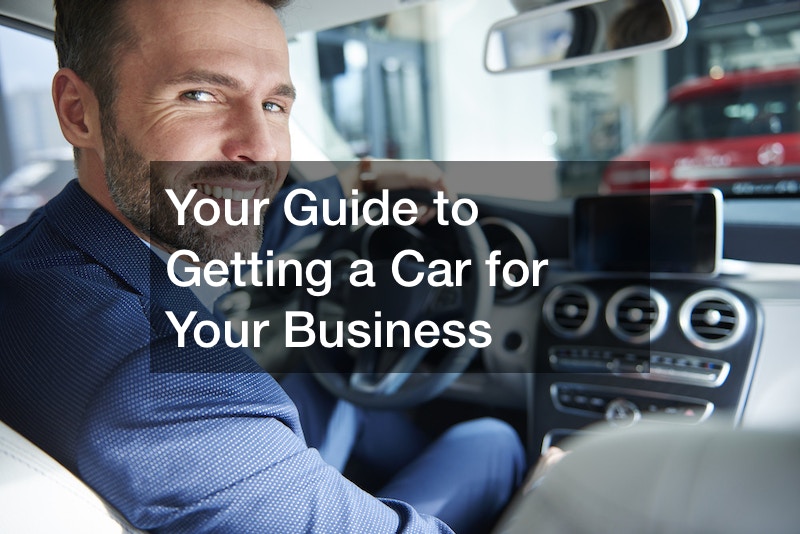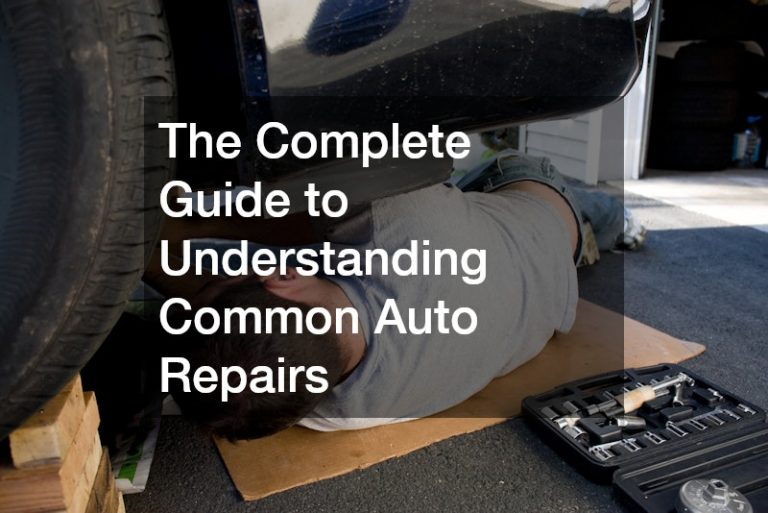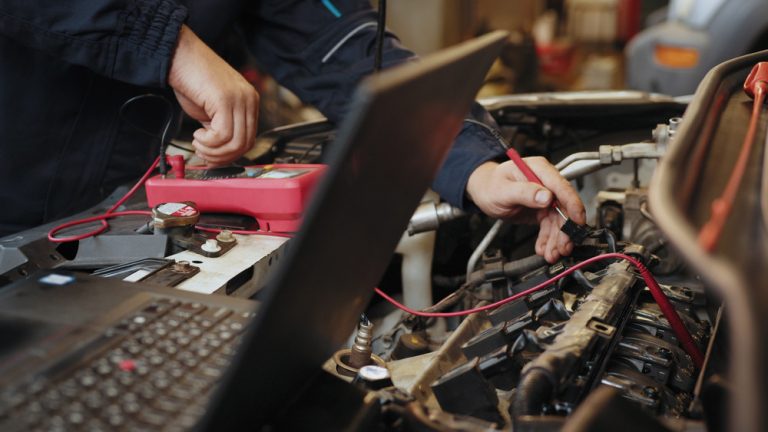

A business vehicle can make a major impact on your business venture. By the time you consider getting a car for your business, a dedicated vehicle for business use only, your business has probably grown. You might not yet earn the kind of profits that would let you purchase a new vehicle outright. That’s okay because you can buy used or certified pre-owned, and take out a commercial auto loan to do it. In this article, we provide a succinct guide to purchasing a vehicle for your business.
Purchasing equipment for your business means reinvesting your profits in the business. When you purchase a computer, car, or work desk, you recommit yourself to your company and its growth. Perhaps you currently use your personal vehicle for business purposes but want to own a business auto, so you can wrap it with a vinyl advertisement for your company and make use of it full-time as a rolling ad, as well as for making deliveries and attending business meetings.
Benefits of Business Vehicle Ownership

Besides having a vehicle dedicated to business that you can use at any time for attending meetings, making deliveries, etc., owning a business vehicle offers many other benefits, too. Let’s consider the many reasons to purchase a business vehicle:
-
- A business vehicle earns the company added U.S. income tax deductions related to automotive expenses, including the cost of ownership, fuel, depreciation, car loan interest, and maintenance.
-
- A commercial auto gets its own commercial auto insurance, so a claim on your personal auto insurance does not affect your commercial policy premiums and vice versa.
-
- A company car can help employees who do not own a vehicle of their own to attend meetings or get to and from work easily. Offering this type of employee benefit can vault you to the top of the list of top employers.
Although owning a business vehicle increases the company’s liability, a commercial insurance policy negates that liability by paying for any accidents caused while it remains in business use.
Make a List of What You Need
Before you shop for your vehicle, make a list of the features you need in it and write it down or type it up on the computer. The first step in getting a car for your business remains figuring out what you need so you can shop with savvy. If you need to load and unload deliveries or equipment daily, then put an automatic lift-gate on the list. Keep this feature list with you while you shop, so you can quickly nix any vehicle that does not meet your needs criteria.
Consider Previously Owned Vehicles

A business earns the same tax deductions whether it buys a new or used vehicle. You might want a new vehicle because of the status symbol or the bells and whistles of the latest technologies, but those cost much more money. That means, you either need the money in the bank or you need an auto loan to cover the purchase.
There’s more than one type of previously owned vehicle. Automotive sales uses designations to discern one type from the other. An auto might be used, pre-owned, or certified pre-owned (CPO).
Let’s consider the difference between the types.
-
- Used: A vehicle of any age and condition previously owned by another business or individual.
-
- Pre-owned: A vehicle aged up to five to seven years with only one previous owner.
-
- Certified pre-owned: A vehicle aged up to five to seven years with only one previous owner that has undergone an inspection of more than 120 points and been manufacturer-reconditioned to its original state at purchase.
A CPO vehicle comes with a warranty and sometimes a roadside assistance package.
Finding an Affordable Vehicle
Buying a business vehicle doesn’t have to cost a lot. While used cars cost the least, purchasing a CPO vehicle or pre-owned vehicle can save your company money, too. Most businesses shop at car sales lots, whether new or used, but you can also find a great pre-owned vehicle by contacting a business brokerage service. A business brokerage service helps companies sell their assets, either in sum or piecemeal, so a business owner can purchase a vehicle from a piecemeal sale.
Choosing a CPO vehicle typically provides the best in-between of new car features and lower
prices. Buying a used car creates an iffy situation because it does not come with guarantees of reconditioning or a warranty. That means all auto care costs belong to the business.
Taking Out a Small Business Loan

Most people think of small business loans as a means to fund starting a business, but they also provide an ideal option for expanding one. That’s what purchasing an auto for a company constitutes. Getting a car for your business requires a significant amount of money, typically thousands of dollars, but you don’t have to save it up to expand. Just like personal auto loans, business auto loans prove easier to get, so don’t worry if your business has not existed long enough to develop a high credit score.
When you purchase a business vehicle, you can use the business’s credit rating and score to qualify. These loans still require a check of the owner’s or financial vice president’s credit. That means, if the business owner has poor credit, they’ll need to formally, and legally designate a separate financial officer whose credit will undergo the check.
Create Your Budget
Determine what your business can afford. Consider your financial statements and how much of your profits you could conceivably devote to a vehicle purchase while still keeping an appropriate cushion for your business operations.
Conduct an honest appraisal. You can always take out a business loan if needed, so don’t worry if you only have $1,000 or $2,000 that you could spend on the vehicle. Use that amount as the down payment on the car, truck, SUV, or van, and take out the loan for the rest of the purchase price. Make sure that your business’s budget can handle the purchase’s monthly costs, too, because missed payments will ruin your credit and result in a repossessed vehicle.
Leasing Offers an Alternative

Maybe buying a vehicle doesn’t suit your business budget. Explore other ways of getting a car for your business like leasing. When you go through the lease process, you avoid needing a car title loan, thereby avoiding its high-interest rates. Leases do require a down payment, but typically a smaller one than a purchase requires. Your business obtains a new vehicle with a maintenance plan included, but you can make changes to the vehicle.
Insuring Your Commercial Auto
Getting a car for your business means also getting commercial auto coverage for your business. Unlike buying personal coverage, auto policies for businesses automatically provide full coverage. That covers both the business’s liability and its vehicle and property damage if involved in an accident. It won’t matter if the driver of the business vehicle caused the accident or not, the commercial policy covers things like the windshield repair at an auto glass company.
When you purchase a vehicle, covering wear and tear problems typically comes out of your own pocket. A vehicle warranty purchase that adds items not covered in the vehicle’s manufacturer’s warranty can help pay for these items. So can a maintenance plan that covers items like oil changes or an engine overhaul at a local diesel repair shop.
When you plan your vehicle purchase for your business, budget for more than getting a car for your business. Build into your budget the monthly costs of maintenance and the weekly costs of fuel. While commercial auto insurance covers collision repairs, it won’t help you cover weekly or monthly costs.
If you reside in an area with many electric vehicle charge stations, consider getting an electric car for your business. Most manufacturers provide free charging at their branded charging stations, so fueling your electric vehicle could be free, as long as it works with your schedule. This remains true whether you purchase a new, used, or otherwise pre-owned vehicle.
Auto insurance coverage does not guarantee that the insurer will always cover a claim. When your business does receive an insurance claim denial, the denial explains why. If you think the company misunderstood the issue, then file again. Like court cases, you can appeal an insurance company’s decision. Learning the processes of your insurance company can make getting a car for your business easier to manage in the long run.
Preparing for Using Your Business Vehicle
If you need to drive your vehicle each day, then consider investing in auto tinting to keep the windshield and windows darkened. More than just getting a car for your business, you need to care for the car to ensure it can operate optimally. This reduces your maintenance costs and your comfort while using it.
Also, consider either adding removable vehicle signage or an auto wrap. Either lets you advertise your business as you drive and can help your commercial vehicle appear more professional. Neither costs much – signage and vinyl wraps cost less than $100.
Add vehicle organizers to the rear of the front seat. This lets you place files in an orderly manner and ensure they don’t slide around or lose papers. A front seat console organizer can help corral errant items like keys, cell phones, and other flotsam.
Getting Your Business and Home Ready for the Business Vehicle
Before getting a car for your business, hire a paving contractor to install a driveway at your place of business. If you will drive the vehicle home each night, also, install a new driveway at your home. Consider installing a carport or garage, so you can park the vehicle out of the elements and away from inclement weather.
Make the driveways last longer and improve their appearance with driveway sealcoating. This type of coating or epoxy adds toughness to the concrete and helps it gleam, so it does not look like cement. Before getting a car for your business, prepare both areas that you will typically park it.
Research Pricing
Know how much you should pay for a vehicle. Grab a Kelley Blue Book or other commonly accepted pricing guide and research the cost of the makes and models you want. This prepares you to negotiate for the best possible price you can get. You should not pay more than fair market value for the vehicle you purchase for your business.
Other fees impact the cost of a vehicle. These include registration fees and state taxes. Depending on the cost of the state taxes, your business may pay less for a vehicle by shopping in another state.
This does not always work because your business may be located in the state with the lowest taxes. It proves helpful to check these items though, so you can maximize the cost savings of your business’s vehicle purchase.
Summing It All Up
Getting a vehicle for your business can help your business function more productively. You won’t need to drive your own personal vehicle or ask employees to use theirs. Owning a business vehicle means providing a perk for your employees because they do not need to put wear and tear on their own vehicles while running errands for the company or attending meetings.
Before purchasing your business vehicle, consider the features you need and what style of vehicle works best – sedan, SUV, truck, or cargo van. Knowing what you need helps to reduce the options and makes it easier to research pricing. Know the state taxes and registration fees, too, since these add to the cost.
Owning a vehicle for your business incurs other costs, including fuel, maintenance, and repairs. Choosing a new vehicle gets you a warranty and a maintenance plan for the first few years of ownership, but costs much more and may require an auto loan. Buying used could save lots of money at purchase, but won’t include a warranty or maintenance plan. Choosing a certified pre-owned vehicle nets you a warranty and a maintenance plan, and costs less than a new vehicle.



